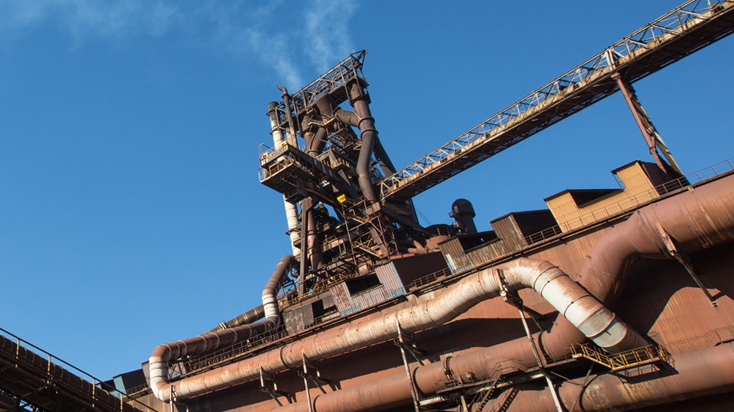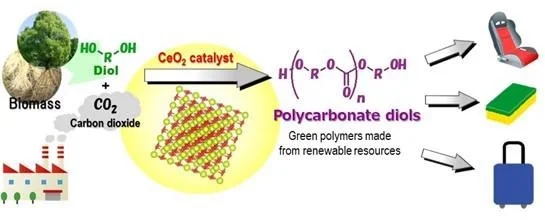

Nippon Steel: Plastic from atmospheric carbon dioxide: Direct synthesis
-Development of a new catalyst process-
Osaka City University Artificial Photosynthesis Research Center
Tohoku University Graduate School of Engineering
Nippon Steel Advanced Technology Research Institute
Without using a dehydrating agent
From atmospheric carbon dioxide and diol
Direct Synthesis of Aliphatic Polycarbonate Diols
The world’s first successful development of a new catalytic process.
Utilizing cerium oxide catalyst:
Combine with a cerium oxide catalyst.
Using this catalyst,
High yield and high selectivity,
An aliphatic polycarbonate diol could be synthesized.
Method found in this study:
A cerium oxide catalyst is used.
Atmospheric pressure carbon dioxide is blown into the diol.
It is possible to remove the generated water outside the reaction system.
It is said that it succeeded in obtaining the desired polycarbonate diol with high selectivity and high yield.
Results of this research
It was published online in “Green Chemistry (IF = 10.18)” on Monday, July 26, 2021.
Field of use:
With this technology, carbon dioxide at normal pressure can be chemically converted without using additives.
This technology is applicable as long as the substrate has a boiling point sufficiently higher than the boiling point of water.
Lithium-ion battery additives
r Polymer synthesis raw material,
Organic carbonate,
Carbamate,
Urea, etc.
It can also be applied to raw material synthesis.
DIME at dime
https://dime.jp/genre/1187339/
Synthetization of Polycarbonate Diols from CO2 and Diols
Research Outline
Integration of a CeO2 catalyst with atmospheric carbon dioxide has enabled researchers
from Osaka City University (OCU)
to develop an efficient catalytic process for the direct synthesis of polycarbonate diols without making use of dehydrating agents.
This was done in collaboration with scientists from
Tohoku University and
Nippon Steel Corporation.The new technique
does not depend on deadly chemical feedstock such as carbon monoxide and phosgene, making it the first high yield “green” reaction system in the world.Their study was published in the Green Chemistry journal.